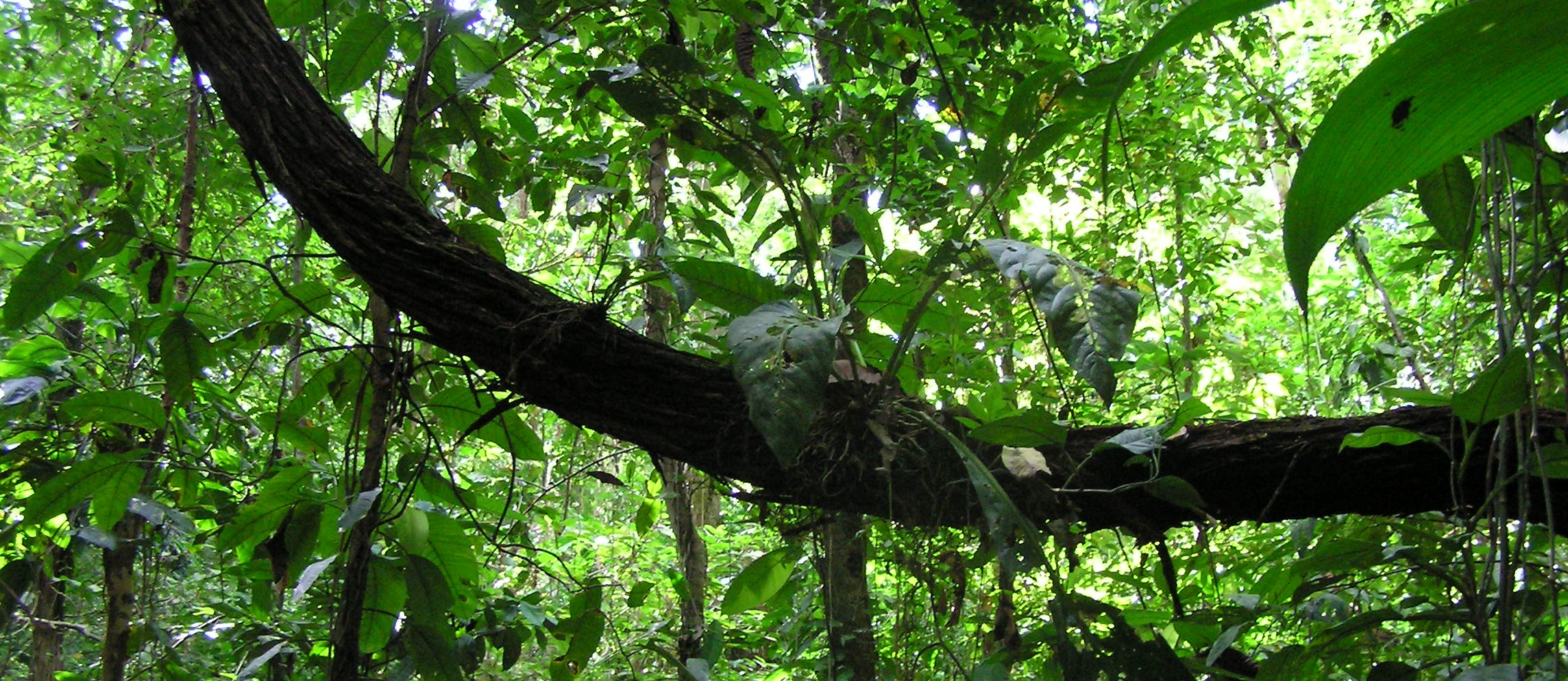Title
Tropical vine growth and the effects on forest succession: A review of the ecology and management of tropical climbing plants
Document Type
Article
Publication Date
2010
Source Publication
Botanical Review
Abstract
The climbing habit has evolved independently in many plant taxa, offering vines the ability to compete with non-climbing vegetation for resources such as light, nutrients, and water. This review examines the structural and functional characteristics that allow climbing plants to (1) achieve widespread dispersal, (2) transport large amounts of water throughout vessels, (3) maintain high photosynthesis levels through a large leaf area to biomass ratio, (4) achieve rapid vertical and horizontal expansion by fast growth rates and various climbing mechanisms and (5) survive and recover from disturbances. Due to the competitive effects of vines on trees, management of vine growth is used to preserve tropical timber plantations, combat invasive weeds, and promote rainforest recovery. In order to sustainably manage the vines into the future, it is necessary to understand the mechanisms by which they can alter tropical forest succession and the impacts of various management techniques. El hábito trepador ha evolucionado de forma independiente en muchos taxa de plantas. Ofrece la capacidad de competir con la vegetación no-trepadora por recursos como luz, nutrientes y agua. Esta reseña examina las características estructurales y funcionales que permiten a las plantas trepadoras (1) lograr dispersión generalizada, (2) transportar grandes cantidades de agua a través de vasos conductores, (3) mantener niveles altos de fotosíntesis mediante una gran proporción de biomasa por área foliar, (4) lograr rápida expansión vertical y horizontal por crecimiento rápido y diversos mecanismos para trepar y (5) sobrevivir a y recuperar de disturbios ecológicos y antropogénicos. Debido a los efectos competitivos de los bejucos en los árboles, el manejo controlado del crecimiento de los bejucos se utiliza para preservar plantaciones maderables, combatir hierbas invasoras, y promover la recuperación del bosque tropical. Con el fin del manejo sostenible de los bejucos en el futuro, es necesario estudiar los mecanismos por los cuales pueden alterar la sucesión de bosques tropicales y los impactos de varias técnicas de manejo.
